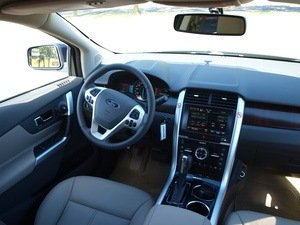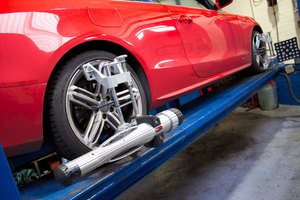Tips to Maximize the Life of Your New Car
We all want to maximize car life. Following the tips below will ensure your car will never prematurely age.
Start as You Mean to Go on
When you start up your car it takes a little time to get up to full power. Don’t sit idling waiting for the car to warm up – this is counterproductive. After starting the car, drive away gently and don’t push it too hard until it has reached closed loop (operating temperature). This allows the oil to warm and protect the engine parts better before you really push them.
Keep to the Maintenance Schedule
When you buy your new car, read the manual in full. Pay particular attention to the required maintenance schedule and follow it accordingly. Choose a certified automotive service center with the right tools and know-how for your brand. Not only will this increase the resale value of your car and ensure that the manufacturer’s warranty stays intact, it will ward off expensive problems with the suspension, drivetrain, cooling system, and other parts. This is a must to maximize car life.
Avoid Short Trips
Cold starts are heavy on your engine parts, and short trips shorten muffler life as condensation builds up. Combine multiple errands into one trip and avoid ultra-short journeys like driving across a parking lot for a different space. On the other hand, drive your car at least once a week to avoid other problems like fluid drainage. If you’re planning on storing a car for a long time, consult a qualified technician on the best way to do this.
Keep It Clean
Leave your car dirty and the pollution, mud, and salt from the road will rust it faster than you’d expect. A few years can see a new car get external rust that will creep into components like the brake lines. Washing your car periodically can save you thousands of dollars in repairs and maximize car life.
Keep Tires at the Right Inflation
Under-inflated tires have a 15% reduced lifespan and contribute to a lower gas mileage. Over-inflating your tires will result in higher wear on the tires and the suspension as well as offer a rough ride. As a bonus, this will decrease consumption as well (read more here)
Replace Some Fluids Periodically
Often overlooked are other fluids that should be replaced periodically. The brake fluid, power steering fluid, and cooling system antifreeze should be replaced every couple of years. Transmission fluid and its accompanying filter should be changed roughly every 40-50,000 miles. Forgetting to change these fluids will leave parts open to damage and they won’t work so well.
Change the Air Filter
An air filter change is easy; at most you’ll need a screwdriver. An old air filter will give you poor gas mileage and your acceleration will be hampered.
Monitor Brake Pads
Check the brake pads periodically and replace them completely before they are worn down to metal. This will be a lot less pricey than replacing calipers or rotors down the line if you just leave the brake pads to wither thin. Discover more break tips here
Change the Oil Regularly
 Changing the oil in your car doesn’t just protect the parts in your engine it nets you better gas mileage and maximizes car life. Generally, you’re expected to change your oil every 3000 to 5000 miles or every three to six months, depending on your engine, the oil used, and the conditions you’re driving your car in. If you keep this up, there’s no reason why a modern engine wouldn’t reach 200,000 miles.
Changing the oil in your car doesn’t just protect the parts in your engine it nets you better gas mileage and maximizes car life. Generally, you’re expected to change your oil every 3000 to 5000 miles or every three to six months, depending on your engine, the oil used, and the conditions you’re driving your car in. If you keep this up, there’s no reason why a modern engine wouldn’t reach 200,000 miles.
It makes sense to change your oil filter at the same time (why would you put new oil through a dirty filter?) Usually this will be part of an express service at your dealership, so you can sit back and relax while they do all the work.
Rotate Your Tires
Tire rotation keeps your tires from being worn down in one particular location. Uneven wear and tear makes for a short tire lifespan. It’s recommended to rotate tires every 6 months or every 6,000 miles. Your owner’s manual will have details on the best way to rotate the tires to get the best lifespan based on the drivetrain and tire type.
Get the Wheels Aligned
A shaking car at high speeds indicates the wheels may not be properly aligned. Ensuring that the alignment of the car is straight reduces wear on both tires and suspension, extending the lifespan of your car. Most service centers will include wheel alignment alongside other regular maintenance you need to perform on your car to keep it in top condition.
A big thanks go out to Brandon of Cable Dahmer Buick GMC Cadillac for his contribution of this article.
About the Author
Tech Guy
Automotive enthusiast, passionate about Jeeps, hot-rods, turbos, performance, efficiency, diesels, fuels, high performance oils, additives and anything with an engine.

